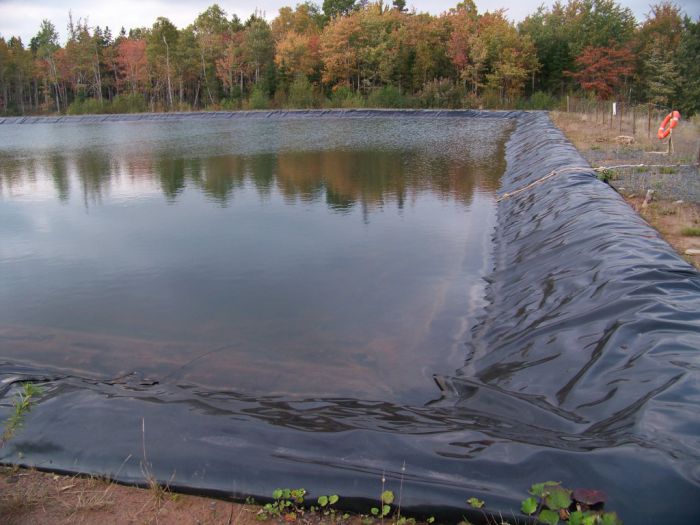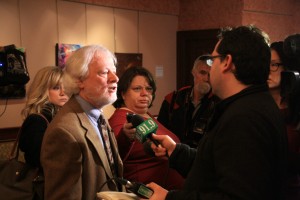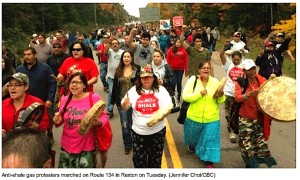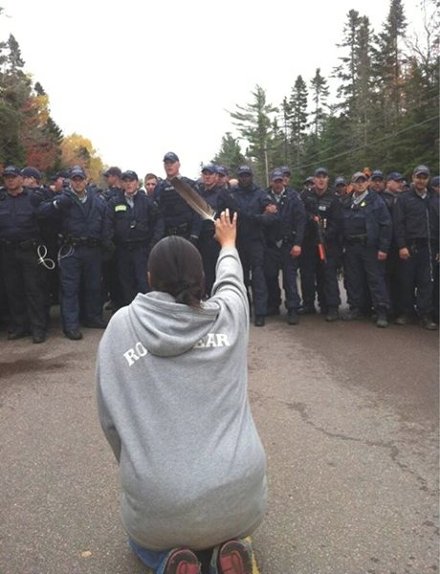PRESS RELEASE
New Brunswick Anti-Shale Gas Alliance calls for a ten-year, legislated and unconditional moratorium on shale gas and oil activities.
MONCTON, NB (March 6, 2014) – Today, the New Brunswick Anti-Shale Gas Alliance (NBASGA) announced its position on a shale gas moratorium – the minimum standard to which the Alliance will hold political parties in this year’s September 22 provincial election.
“We are calling for a ten-year, legislated and unconditional moratorium on all unconventional oil and gas exploration and production in New Brunswick,” said NBASGA spokesperson Jim Emberger. “During that period, all existing leases must be cancelled and no new leases granted.”
The moratorium must be enacted by binding legislation, because “campaign promises, executive actions and vague intentions are not good enough.”
A ten-year moratorium, rather than a ban, recognizes that there may still be New Brunswickers who have doubts about shale gas, but who are not yet convinced that an absolute ban is warranted.
“NBASGA is confident that after ten years, shale gas will be permanently banned as a result of what is learned during the moratorium,” he said, adding that, ‘we use shale gas as shorthand for unconventional oil and gas.”
NBASGA rejects any notion that we should rely on two future reports from Environment Canada and the U.S. Environmental Protection Agency (EPA).
“These reports are far too narrow in scope,” Emberger noted. The EPA focuses solely “on the relationship between hydraulic fracturing and drinking water resources” and says its report intentionally does not study the effects of shale gas on air pollution, public safety, specific health problems, ecological effects, seismic risks, etc. The Environment Canada report is likely to be useful only as a means to identify areas for study. The creditability of both agencies has been damaged by gross interference by politicians and the industry.
Ten years is the minimum time necessary to do the required long-term scientific studies on all the aspects of shale gas, many of which remain unstudied. Every day, newly-discovered problems arise that merit research.
Emberger said, “The only existing long-term public health study of shale gas, which spanned only three years, revealed substantially increased risks for cancer and diseases, some of which may take years to develop. Recent studies focusing on specific factors indicate that living near shale gas wells increases instances of low birth weight babies, poor infant health, congenital heart defects, and exposure to endocrine disruptors.”
All these studies have identified health problems occurring at distances well beyond all regulatory setbacks from gas and oil wells, and indicate that air pollution may be a more serious health threat than the water contamination that has caused so much concern. Emberger noted that, “All the studies call for more research, and there are no studies suggesting the industry is safe.”
History is littered with instances where the lack of sufficient testing has resulted in tragedy.
Examples of how the premature use of chemicals has cost countless lives and left lasting environmental damage include: asbestos, lead, mercury, radium, DDT, and a host of industrial chemicals such as PCB’s, CFC’s and dioxins. Many of the 650 fracking chemicals are known toxins and carcinogens, but many more have never been tested for health hazards.
We are not the only ones voicing serious concerns.
“Traditional oil patch cities in Colorado, Texas and Pennsylvania are now calling for moratoriums or bans on shale gas. Wouldn’t it be prudent to take the time to find out why?” Emberger asked.
Our international obligations to stop catastrophic climate change will require us to forego new fossil fuels and switch to alternative clean energy.
In conclusion, Emberger said, “The good news is that the clean energies are, by far, the fastest growing sectors of the energy industry, and they create huge numbers of jobs. Following that path for ten years should be the proper responsible and moral role for our government.”
About the NBASGA
The New Brunswick Anti-Shale Gas Alliance represents the interests of New Brunswickers opposed to unconventional gas and oil exploration and development, while promoting a future in clean energy alternatives.
Website: www.noshalegasnb.ca
Email: shaleinfo.nb@gmail.com
###


 “The scientific research that has been done to date on shale gas, and the experience of communities elsewhere with the industry, is alarming,” Roy Ries said. “These show that shale gas development using current technologies needlessly jeopardizes the health of families and communities across New Brunswick.”
“The scientific research that has been done to date on shale gas, and the experience of communities elsewhere with the industry, is alarming,” Roy Ries said. “These show that shale gas development using current technologies needlessly jeopardizes the health of families and communities across New Brunswick.” The group echoes the fears expressed in an Amnesty International letter to Premier David Alward and his cabinet dated, November 1, that unless steps are taken to rebuild the relationship with Indigenous Peoples with respect to resource development, further incidents could occur.
The group echoes the fears expressed in an Amnesty International letter to Premier David Alward and his cabinet dated, November 1, that unless steps are taken to rebuild the relationship with Indigenous Peoples with respect to resource development, further incidents could occur.